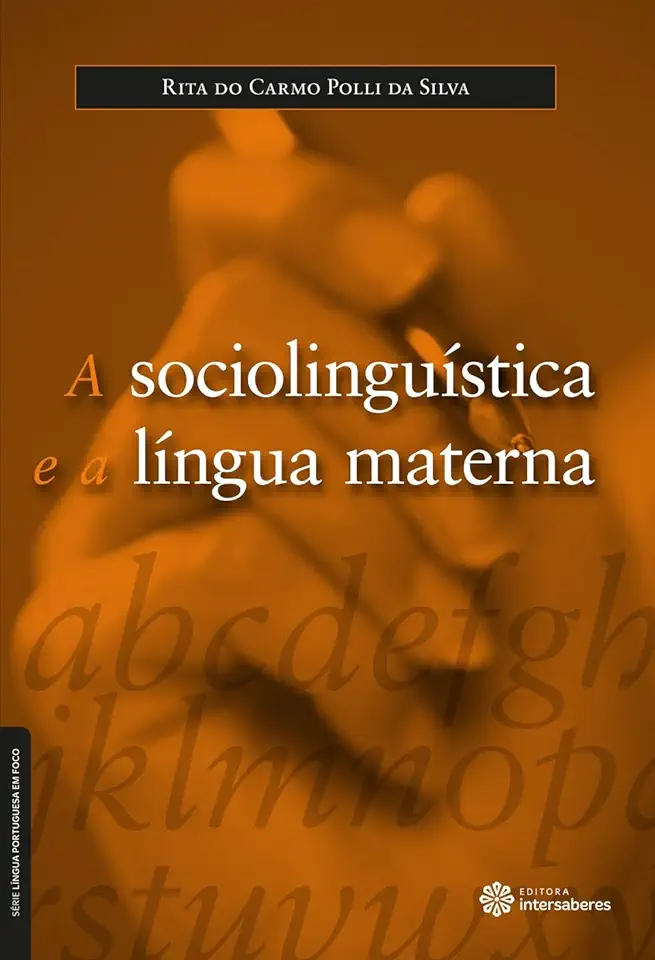
Sociolinguistics and the Mother Tongue - Rita do Carmo Polli da Silva
Sociolinguistics and the Mother Tongue: Exploring the Interplay of Language and Society
Introduction: Unveiling the Essence of Sociolinguistics
In the realm of language studies, sociolinguistics stands as a captivating discipline that delves into the intricate relationship between language and society. This groundbreaking book, authored by the esteemed Rita do Carmo Polli da Silva, offers a comprehensive exploration of sociolinguistics, shedding light on the profound impact that social factors exert on language use and variation. Through an engaging narrative, the author invites readers to embark on an intellectual journey, unraveling the mysteries of language and its profound connection to the social fabric of our lives.
Chapter 1: The Foundations of Sociolinguistics - A Paradigm Shift in Language Study
This chapter lays the groundwork for understanding sociolinguistics, tracing its historical roots and evolution as a distinct field of study. Polli da Silva meticulously examines the pioneering contributions of renowned linguists who paved the way for sociolinguistic research, highlighting the paradigm shift that occurred in the study of language. By delving into the theoretical underpinnings of sociolinguistics, readers gain a solid foundation for comprehending the intricate interplay between language and society.
Chapter 2: Language Variation - A Tapestry of Linguistic Diversity
In this chapter, the author delves into the fascinating realm of language variation, showcasing the kaleidoscope of linguistic diversity that exists within and across societies. Polli da Silva meticulously analyzes the various factors that contribute to language variation, including social class, ethnicity, gender, age, and region. Through engaging case studies and real-world examples, readers gain a profound understanding of how social factors shape language use and create distinct linguistic patterns.
Chapter 3: Language and Social Identity - The Mirror of Our Selves
This chapter explores the profound connection between language and social identity, revealing how language serves as a mirror reflecting our individual and collective identities. Polli da Silva examines the intricate ways in which language choices convey social meanings, shaping our perceptions of ourselves and others. Through insightful analyses of linguistic practices, readers gain a deeper appreciation for the role language plays in constructing and negotiating social identities.
Chapter 4: Language and Power - The Dynamics of Linguistic Authority
In this chapter, the author delves into the complex dynamics of language and power, unveiling the ways in which language can be used as a tool of social control and domination. Polli da Silva critically examines the relationship between language and power structures, exploring how certain linguistic practices can perpetuate social inequalities and marginalize certain groups. By shedding light on the intricate interplay between language and power, readers gain a deeper understanding of the political dimensions of language use.
Chapter 5: Language and Education - The Nexus of Language and Learning
This chapter explores the crucial role of language in education, highlighting the complex relationship between language and learning. Polli da Silva examines the challenges faced by students from diverse linguistic backgrounds and the implications for educational policies and practices. By delving into the intricate dynamics of language and education, readers gain insights into the importance of fostering linguistic diversity and promoting inclusive educational environments.
Chapter 6: Language and Technology - The Digital Transformation of Linguistic Landscapes
In this chapter, the author investigates the transformative impact of technology on language and communication, exploring the ways in which digital platforms have reshaped linguistic practices and norms. Polli da Silva examines the emergence of new linguistic forms, the blurring of geographical boundaries, and the challenges posed by digital communication. By understanding the intricate relationship between language and technology, readers gain a glimpse into the future of linguistic landscapes and the evolving nature of human communication.
Conclusion: Embracing the Power of Sociolinguistics - A Catalyst for Social Change
In the concluding chapter, Polli da Silva eloquently summarizes the key insights gained throughout the book, emphasizing the profound significance of sociolinguistics in understanding the complexities of human communication and social interaction. The author passionately advocates for the transformative power of sociolinguistics as a catalyst for social change, empowering individuals to critically examine linguistic practices and challenge social inequalities. By embracing the principles of sociolinguistics, readers are inspired to become agents of positive change, fostering linguistic diversity, promoting social justice, and building a more inclusive and harmonious society.
Why You Should Read This Book:
- Gain a comprehensive understanding of sociolinguistics and its profound impact on language use and variation.
- Explore the intricate relationship between language and society, uncovering the social factors that shape linguistic practices.
- Delve into the fascinating realm of language variation, appreciating the kaleidoscope of linguistic diversity that exists within and across societies.
- Discover the profound connection between language and social identity, gaining insights into how language choices convey social meanings and construct our sense of self.
- Critically examine the dynamics of language and power, unveiling the ways in which language can be used as a tool of social control and domination.
- Explore the crucial role of language in education, understanding the challenges faced by students from diverse linguistic backgrounds and the implications for educational policies and practices.
- Investigate the transformative impact of technology on language and communication, gaining a glimpse into the future of linguistic landscapes and the evolving nature of human communication.
- Embrace the power of sociolinguistics as a catalyst for social change, empowering yourself to critically examine linguistic practices and challenge social inequalities.
Order Your Copy Today:
Embark on an intellectual journey that will transform your understanding of language and society. Order your copy of "Sociolinguistics and the Mother Tongue" by Rita do Carmo Polli da Silva today and unlock the secrets of sociolinguistics, gaining a deeper appreciation for the profound interplay between language and the social fabric of our lives.